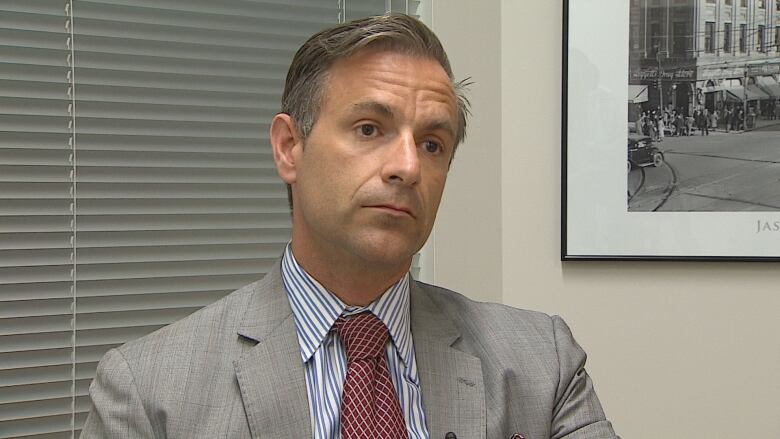Investors return to oil and gas sector after long period of industry ‘doldrums’ | CBC News
Some investors who’d pulled out of the oil and gas sector in recent years have started to return.
Among them is Calgary-based wealth portfolio manager Martin Pelletier, who said his firm exited the oil and gas sector “in a material way” in 2015 before returning about a year and a half ago.
“I was on the sidelines for a good part of the last … four or five years, I guess,” said Pelletier, with the wealth management firm Wellington-Altus Private Counsel, a division of Wellington-Altus, which manages more than $20 billion in assets.
Pelletier said he was drawn back in part by rebounding oil prices and what he described as a “precarious” supply situation.
“[That] made it a lot more of an attractive investment environment,” he said.
These days, hefty profits and a renewed interest in energy security prompted by the war in Ukraine are the two biggest reasons for the renewed interest by investors, after several years of lackluster financial returns and growing concerns about climate change.

“Any investor who hasn’t participated in the run here in oil and gas … there’s a bit of a fear of missing out,” said Jeremy McCrea, managing director of energy research with Raymond James.
Year-to-date, Cenovus shares are up about 50 per cent, Canadian Natural Resources shares are up 37 per cent and Suncor shares are up about 34 per cent.
In comparison, the S&P/TSX Composite Index is down roughly 12 per cent.
Michael Tims, vice-chairman of Matco Investments Ltd., said this year has marked a change from a lengthy period of “doldrums” following the 2014 oil crash, punctuated by a steep decline in prices during the peak of the pandemic in 2020.
“By June of 2022, we hadn’t got quite back to the 2014 peaks, but we’d certainly surpassed the levels of all the years from 2015 through to the present,” he said.
Since June, Tims noted energy stocks have taken a bit of a dip. The difference, he said, is that for a long time, the sector was out of step with the rest of the market.
“Now we’re seeing everything kind of pulling back concurrently [amid] worries about recession,” he said.
What to do with the renewed investment?
Part of what makes the current moment different from previous boom times is that, while companies are enjoying their stock prices, they aren’t generally pouring much money into capital expansion.
Instead, Tims said many exploration and production companies are projected to pull in about three-and-a-half times as much cash as what they plan to spend on capital.
“That’s a big sea change for the Canadian oil and gas industry,” said Tims.
Wisened by previous boom-bust cycles, McCrea believes companies are trying to be more prudent this time around.
“It’s that, ‘Just don’t don’t blow it,’ kind of thing here,” he said.
The current regulatory environment also plays a role, he said. McCrea said oilsands producers might be reluctant to spend years developing a new project when, for example, the federal government wants all cars sold by 2035 to be zero-emission.
“There’s a lot of regulatory headwinds that is just keeping pretty much every producer not willing to expand their spending programs to bring on more production,” said McCrea, who said they’re instead maintaining production with existing facilities.
“As a result your profits actually then increase quite a bit, which then can be turned back into dividends and buybacks and quite frankly that’s a bit of what a lot of these investors are looking for here.”
The International Energy Agency said last year that no new oil and gas fields, or coal mines, are possible if the world is to reach net-zero greenhouse gas emissions by 2050.
For many years, investors around the world have been warned to pay attention to climate risks because of the potential for stranded assets and the impact on global warming. That’s part of the reason dozens of banks, pension funds and other financial institutions have decided to divest from the fossil fuel industry.
For his part, Tims hopes the industry should use this moment to make a big push toward hitting its environmental, social and governance (ESG) targets.
“I think it’s a window of opportunity,” said Tims, to reduce methane emissions, clean up orphaned wells and dedicate resources to carbon capture and storage.
He believes this will also lead to better returns in the long-term, as investors differentiate between companies that are following the “right path” and those that are resisting.
“The right focus isn’t to be anti-woke,” he said. “The right focus is to do the best the industry can do on all those subjects.”
For all the latest Business News Click Here
For the latest news and updates, follow us on Google News.

